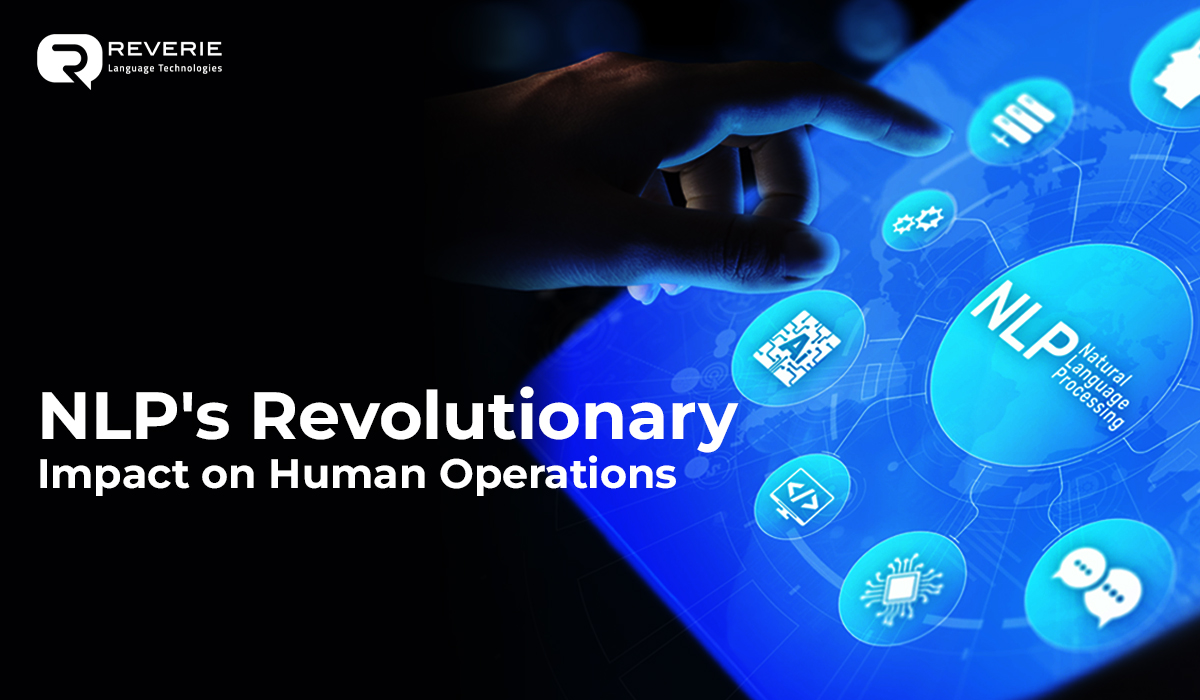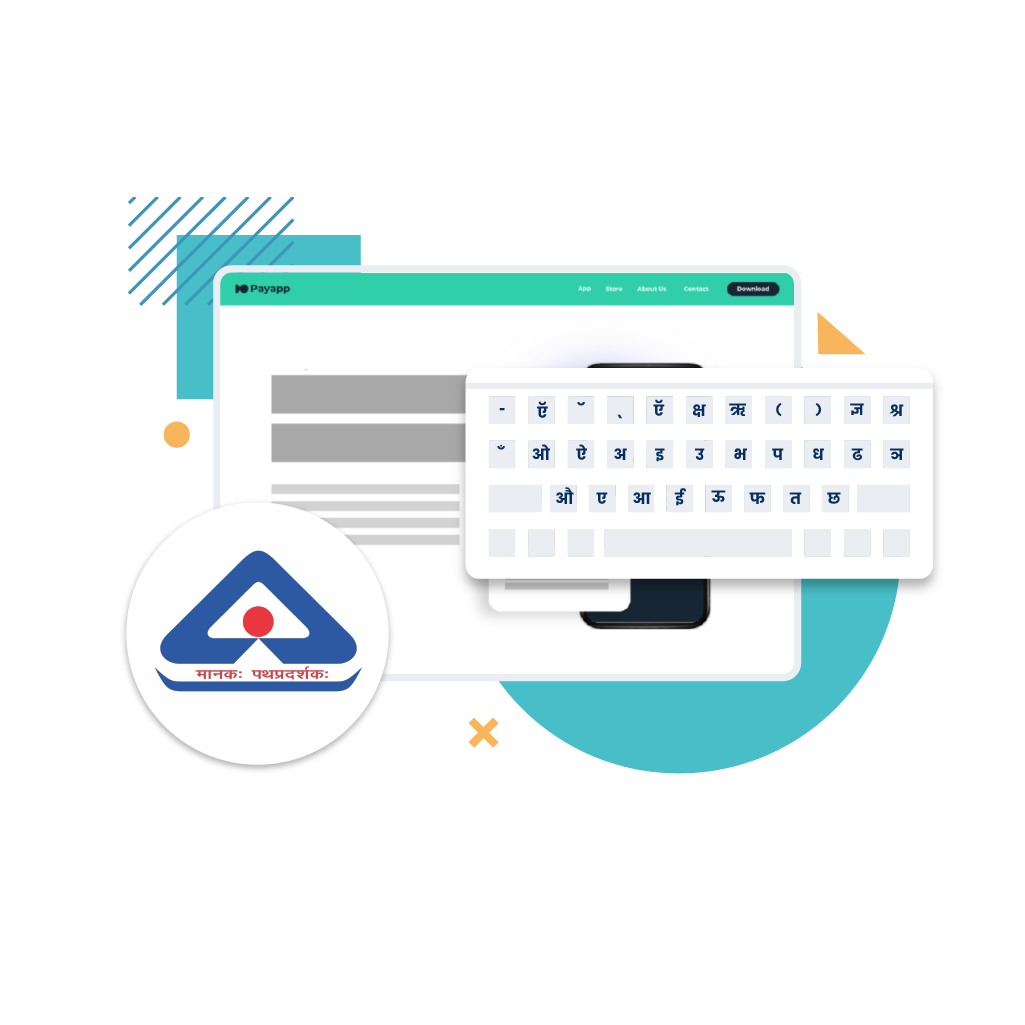Imagine a corporate scenario where business operations are running seamlessly and there are no communication barriers. It will not only enhance the efficiency of the organization but also keep the employees satisfied and engaged.
Now, what if we tell you that this does not have to be a fictional scenario? With the power of NLP (Natural Language Processing), organizations can break free from linguistic barriers, allowing employees to communicate smoothly in their native language. Businesses can even interact with their customers and stakeholders in their preferred language with the help of multilingual NLP solutions. It also can help businesses overcome the challenge of information overload and optimize operations to enhance overall efficiency.
NLP is a branch of artificial intelligence (AI) that focuses on the interaction between computer and human language. But we will learn more about it in detail later in this article. NLP is not merely a technological tool. Instead, it’s a revolutionary approach that can optimize operations and propel a business to greater heights in the global marketplace.
In this post, we will learn the basics of NLP and how it can enhance the operations of an organization.
Understanding Natural Language Processing (NLP)
Natural Language Processing (NLP) is a subfield of artificial intelligence, working as the technological bridge between human language and computers. NLP enables computers to comprehend, interpret, and process human language.
This technology empowers machines to mirror human conversation when interacting with users. Applications like chatbots, text summarizations, and sentiment analysis, make conversations more intuitive. NLP can also enhance decision-making and process optimization for organizations through the analysis of patterns, data, and linguistic nuances.
Today’s era is dominated by global markets and diverse workforces, where effective communication is a crucial aspect of business success. NLP breaks down language barriers within organizations, fosters collaboration and enhances efficiency.
In addition, NLP’s multifaceted real-world applications can impact various aspects of daily life and business. For instance, chatbots that are powered by NLP have become an indispensable tool in customer service. Did you know that the global chatbot market size is expected to reach $1.25 billion by 2025? This shows the expanding potential of NLP in customer interactions.
NLP facilitates communication and revolutionizes the way organizations operate by helping businesses navigate the nuances of a linguistically diverse world. Let’s take a look at how NLP is revolutionizing Human Operations.
How is NLP Revolutionizing Human Operations?
NLP can reshape the way organizations operate, from streamlining internal communication to enhancing customer interactions, analyzing data, and automating tasks. Let’s explore how NLP (Natural Language Processing) is revolutionizing human operations.
Streamlining Communications
For any organization that wants to enhance its efficiency, the first step is to enhance its internal communication. According to Clear Company, companies that have effective communication are 50% more likely to have lower employee turnover rates. This depicts the importance of streamlined internal communication in an organization.
NLP provides real-time language translation capabilities, which minimizes any sort of miscommunication. It ensures that every message is conveyed accurately, reducing the risk of misunderstanding that may lead to costly errors. NLP enables employees to communicate and collaborate more effectively, irrespective of their native or preferred language. Hence, it makes it easier for organizations to make decision-making processes smoother and faster.
Enhancing Customer Interactions
When it comes to customer interactions, NLP plays a crucial role in understanding customers’ needs and elevating their experience. Chatbots and virtual assistants powered by NLP can offer instant and contextually relevant responses to customers’ queries. Not only this, NLP-enabled chatbots can be made available 24/7 and can be designed to be highly interactive.
NLP understands user preferences and behavior, which it uses to provide them with personalized customer experiences. In fact, 91% of consumers are more likely to engage with brands that provide relevant offers and recommendations.
Analyzing Data and Insights
At times, decision-making can be a complicated process for businesses, especially when there is a lot of unstructured data involved. Fortunately, NLP applications can help organizations analyze even unstructured data. It fills the gap between the data and insights by unlocking the unstructured data’s hidden potential. This enables companies and organizations to make data-driven decisions.
Traditional analysis tools may struggle with data sources like documents, emails, and social media content. However, NLP algorithms can analyze them on demand and provide valuable insights. With the ability to process and analyze large datasets swiftly, NLP streamlines market research, giving insights into market trends as well as competitor strategies.
Streamlining Business Processes
Answering the same customer inquiries and processing the same data repeatedly can take up a lot of time. But with NLP, companies can automate these repetitive and mundane tasks, saving valuable employee time. This way, people can focus on more complex and strategic tasks.
As NLP automates tasks, companies can expect optimized workflow efficiency and reduced manual efforts. Here’s the best part, NLP also reduces the need for corrections and rework, which can be costly. The increment in efficiency and lack of human errors leads to cost savings and a competitive edge for businesses.
NLP in Day-to-Day Life
Technology has now become a huge part of our lives, and NLP (Natural Language Processing) is no longer restricted to corporate boardrooms. It is redefining the way we communicate and interact in our day-to-day lives.
Voice Assistants
We all have seen how voice-activated assistants like Amazon’s Alexa, Apple’s Siri, and Google Assistant work. These voice-activated technologies are the perfect examples of the seamless integration of NLP into our daily lives. Let me share a little-known fact with you, currently, there are more than 4.2 billion voice-activated digital assistant users globally. Now, here’s where it gets exciting, in 2024, the number is expected to cross 8.4 billion.
Whether we want to set reminders, send messages, or even control our smart home appliances, these NLP-powered assistants can do that in a more convenient way for us. The best part about all of this is that as technology advances, the scope of voice commands also expands.
Language Translation
This is the area where NLP shines the most. The language translation from NLP can bridge gaps and foster cross-cultural communication. It has made multilingual communication seamless, allowing travelers, businesses, and individuals to effortlessly communicate across language barriers. NLP’s integration for language translation not only enhances personal interactions but also allows businesses to connect with diverse markets.
Future Prospects of NLP: Where is it Headed?
With emerging technologies, the future of NLP (Natural Language Processing) looks exciting. We can expect more advancements and revolutionary changes in the way we interact with language. Here’s where it gets even more interesting; businesses have already started using advanced applications, including sentiment analysis and emotion recognition. This is helping businesses get an understanding of customer reactions more accurately.
However, as NLP becomes more integral to our lives, it is also important to keep ethical considerations in mind. This means, concerns related to privacy, data security, and bias. Addressing these challenges is crucial for the responsible development of NLP technologies. This is where tools like Reverie excel. It combines AI, NMT (Neural Machine Translation), NLU, NLP, and machine learning while ensuring data privacy and security. Reverie helps governments and businesses interact with 650 million non-English speaking users on the internet.
The Verdict
NLP is more than just a technological tool. It works as a catalyst for revolutionizing human operations. It streamlines communication, enhances customer interactions, and automates business processes. The growth of NLP promises a world where linguistic diversity becomes an asset, not a barrier, especially in a country like India. If you want to learn more about how tools like Reverie, that combine technologies like NLP, machine learning, and more, can revolutionize businesses and human operations through comprehensive translation solutions, click here.


